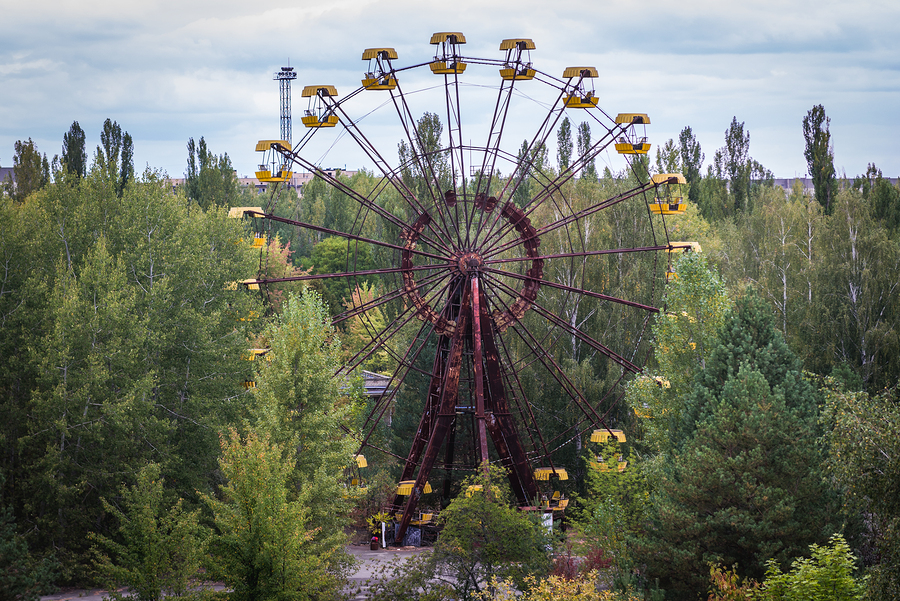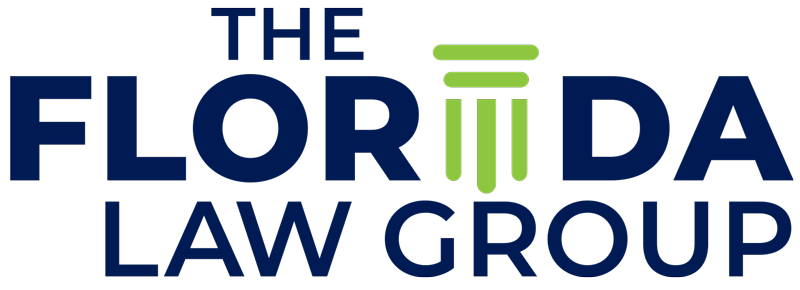Injuries at Theme Parks
Florida Law Group Construction Accidents, General, Personal Injury

Tampa enjoys the benefits of being in close proximity to some of the world’s largest, most popular, and most famous theme parks. Disney World, Busch Gardens, Universal Studios, and other smaller but equally entertaining nearby attractions offer family fun of every variety, including rides, shopping, shows, and dining. Unfortunately, visitors to even the most carefully managed and maintained parks may be at risk for accidents and resulting injuries.
If you visit theme parks, you should be aware of the common reasons that accidents and injuries can occur, the Florida laws and regulations that apply to theme parks, and what to do if you or a loved one has suffered an injury while visiting a theme park.
Causes of Theme Park Injuries
The overall safety of theme park rides, especially roller coasters, has increased over the decades. For example, injuries on old wooden coasters were far more common than they are on today’s carefully designed, state-of-the-art rides. However, negligent acts or omissions can still lead to injuries on a ride, regardless of its type or age. Examples of things that might cause injuries include:
- Defective or weak lap bars or restraints;
- Insufficient warnings about risks of a ride, especially for anyone who might have medical conditions;
- Ride operator errors or distractions;
- Poor staff training, including that for ride operators;
- Defective design or manufacturing of a ride and its components;
- Poor maintenance and inspection practices; and
- Allowing visitors who do not meet minimum height requirements on the ride.
Florida Theme Park Safety Regulations
The United States has no federal regulations governing theme parks and accompanying ride inspections. However, Florida theme parks are subject to state guidelines that require annual permits, employee training, inspections, and more. An overview of the relevant standards under the statute include:
- All ride components that affect safety must be in good working order.
- All devices that control the ride, its speed, and stopping must be in good working order.
- Parts cannot be bent or distorted; they must be properly aligned with regular lubrication where applicable.
- The public cannot use a ride until it has been placed or secured with blocking, cribbing, outriggers, or other means to demonstrate it is stable under all operating conditions.
- Dangerous areas and machinery for the rides must be fenced or barricaded.
- When applicable, rides must have a device that limits its maximum speed.
- All parts of a ride where patrons have contact must not have sharp or rough edges or corners, and no projecting studs, bolts, or screws.
- Theme parks must display signs that show age, size, and health restrictions, as well as weight limits or other special restrictions.
Types of Theme Park Ride Injuries
When theme parks fail to follow safety standards, or act in another negligent manner, patrons are at risk for severe injuries or death. The Consumer Product Safety Commission reports more than 30,000 amusement park injuries each year. Some examples of injuries that a visitor to a theme park might suffer on a ride include:
- Fractured or crushed bones;
- Whiplash and other neck injuries;
- Back injuries;
- Traumatic brain injury (TBI);
- Amputations; and
- Burns.
Other Injuries at Theme Parks
When people think of theme park injuries, they often think of ride-related injuries. Yet many other types of injuries may occur during a theme park visit. Some examples include:
- Slips, trips, and falls. Visiting a theme park typically requires a lot of walking, so these types of accidents are abundant. In fact, they occur more often and cause more injuries than any other type of theme park accident. Uneven walking paths, trash and other debris, colliding with other visitors, and a wide variety of other hazards might cause a person to slip and fall, or trip and fall.
- Drowning. Theme parks with numerous water features and water attractions pose a risk for drowning. Mechanical malfunctions or dangerous conditions might also cause drowning. Small children who cannot swim may be at heightened risk for drowning should they fall into water.
- Transportation accidents. Most theme parks, especially the larger ones, have trams, trains, and/or carts that transport visitors. Any of these vehicles might crash, or a passenger may fall off, or trip and fall when they are entering or exiting.
- Food poisoning. Concession stands, theme park restaurants, and bars who fail to adhere to food safety standards may cause visitors to get food poisoning.
- Violence. Other visitors might intentionally harm patrons, with assault being most common. In many cases, if the park had adequate security, these types of incidents could have been avoided.
Defense Tactics
In the event that a patron is injured at a theme park and they then file claims against the park owner, management company, or other relevant defendants, a team of defense attorneys will usually be deployed to use every tactic in their arsenal to avoid liability. These include shifting blame to the victim under Florida’s rule regarding comparative negligence, or shared liability. This means that when a victim is found to be partially responsible for their own injuries, how much they can recover in damages will be reduced by that amount.
For example, if a victim suffered $100,000 in damages but was 10 percent at fault, they cannot recover more than $90,000 from the defendants, even if they are successful with their claims. Application of the comparative negligence rule is standard in most Florida personal injury cases.
Another common tactic, especially in cases involving theme parks, is for the defendants to claim the plaintiff “assumed the risk” by going to a theme park and riding the attractions, and therefore the park should not be responsible for any resulting injuries. An experienced personal injury attorney will know these and the other common tactics, as well as how to overcome them and get the best possible outcome for their client.
Contact an Experienced Personal Injury Lawyer Today
If you or a loved one were injured by the negligence or recklessness of a theme park, one of its employees, or another visitor, during your visit to a theme park, Florida law entitles you to seek compensation for your damages in civil court. You can expect the defendants to push back against your claims, so get a personal injury attorney with experience in theme park injuries on your side. Contact The Florida Law Group in Tampa at (813) 463-8880 or online to schedule a free consultation and learn if we may be able to help you.


